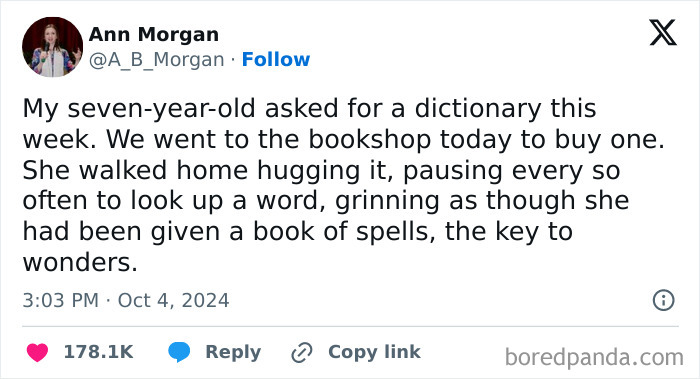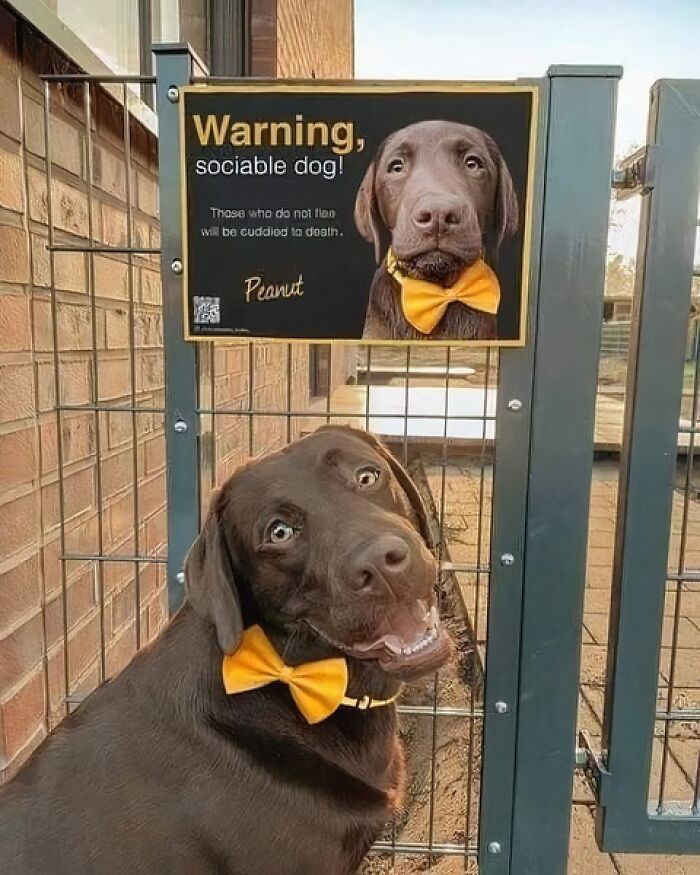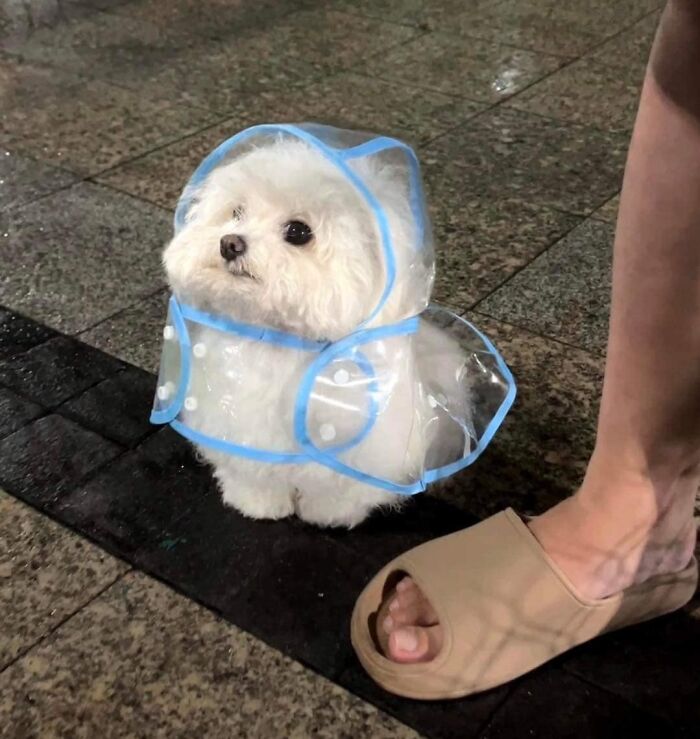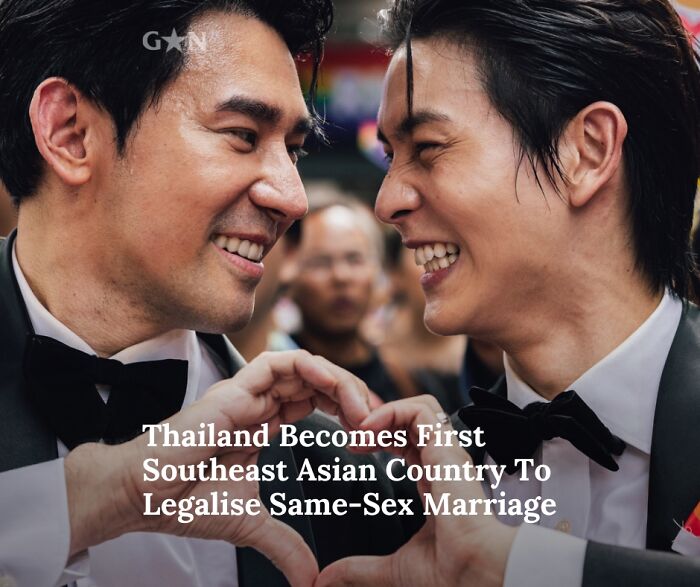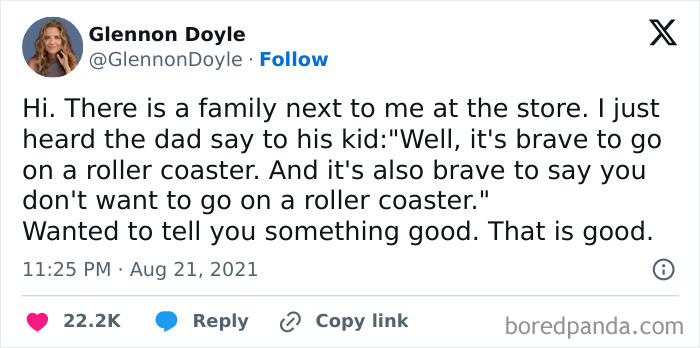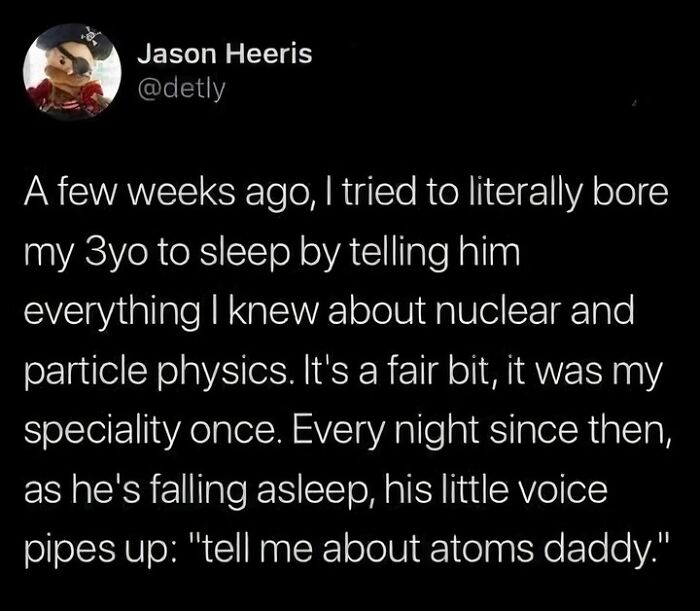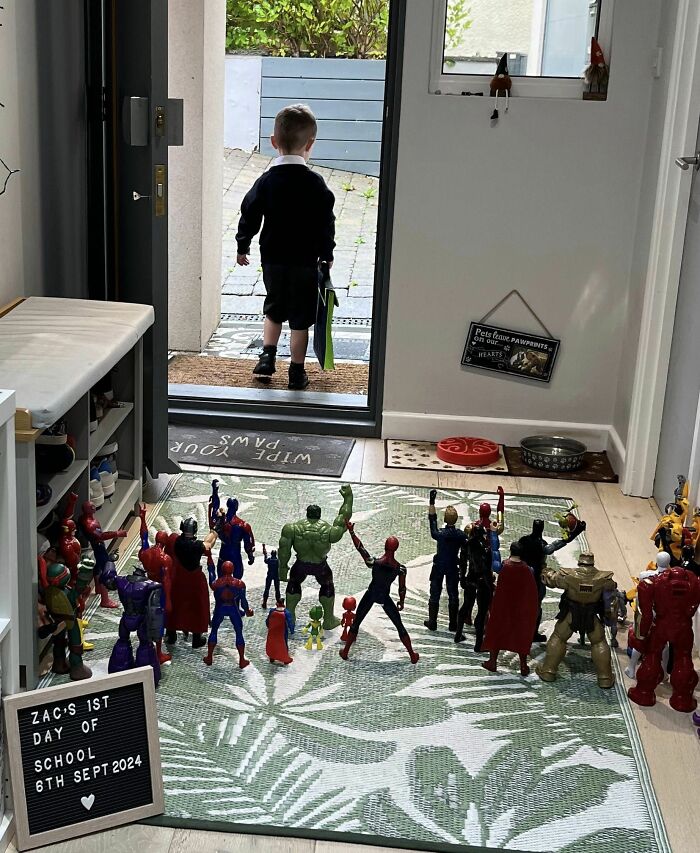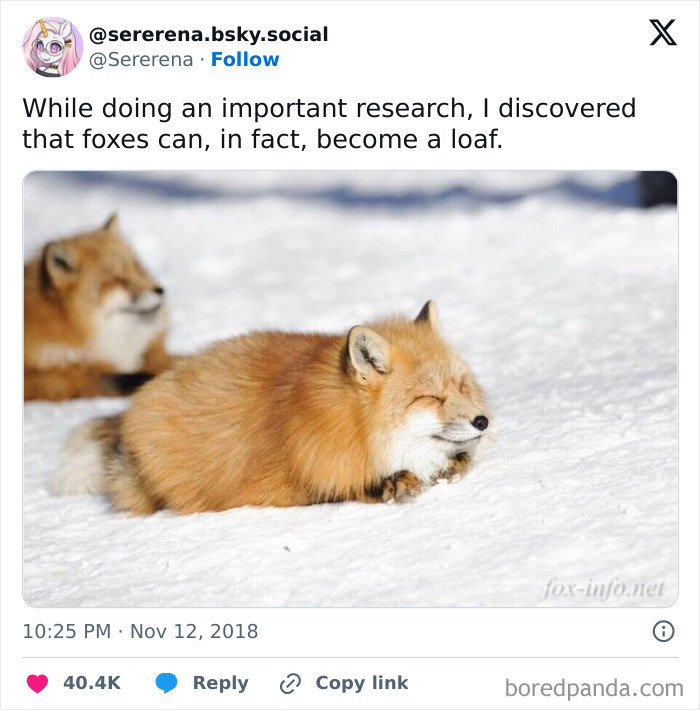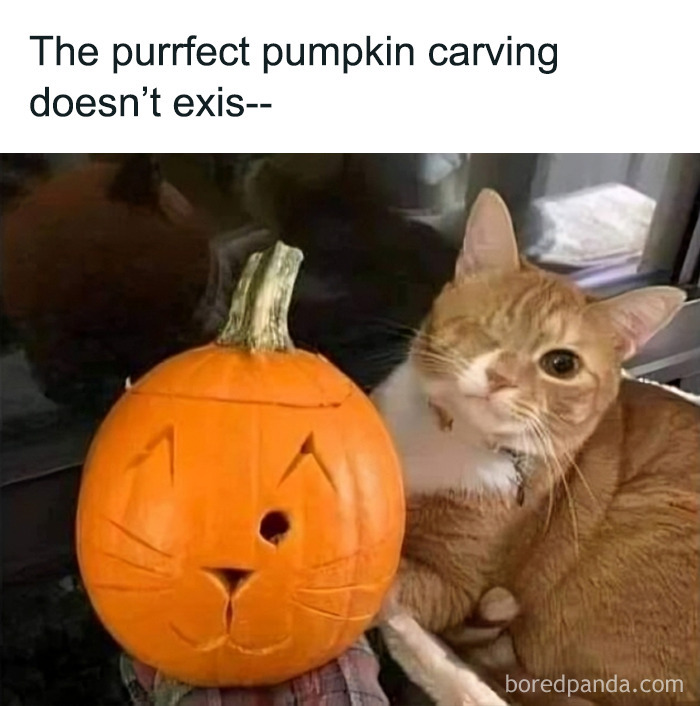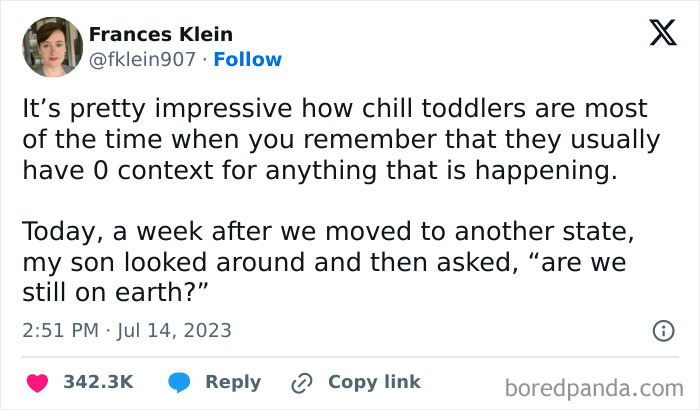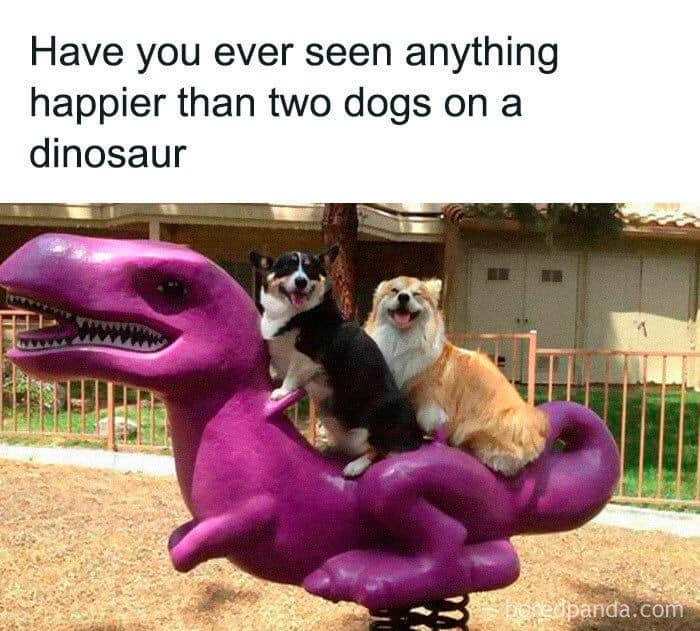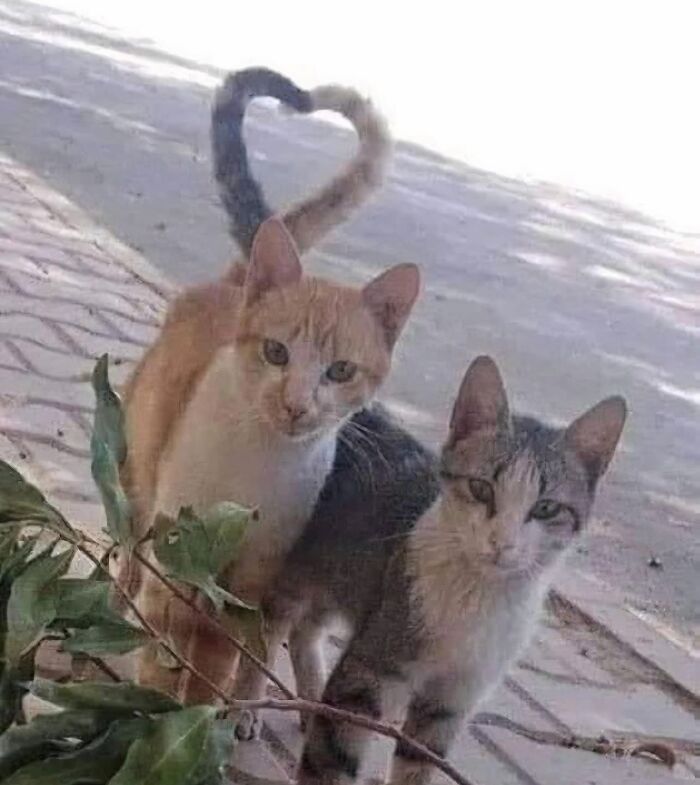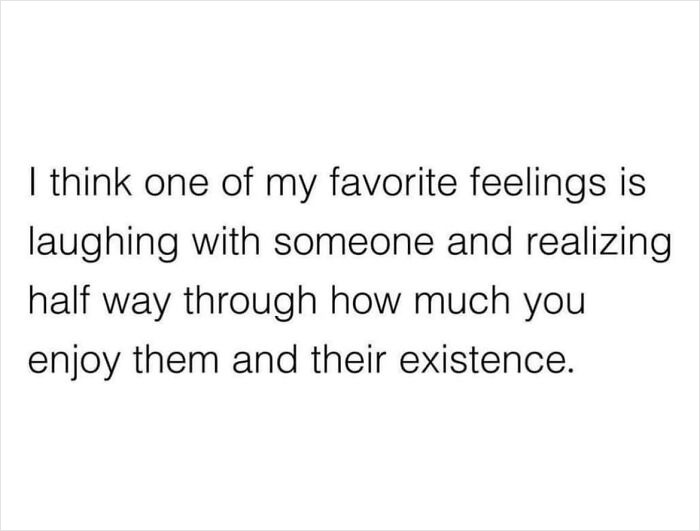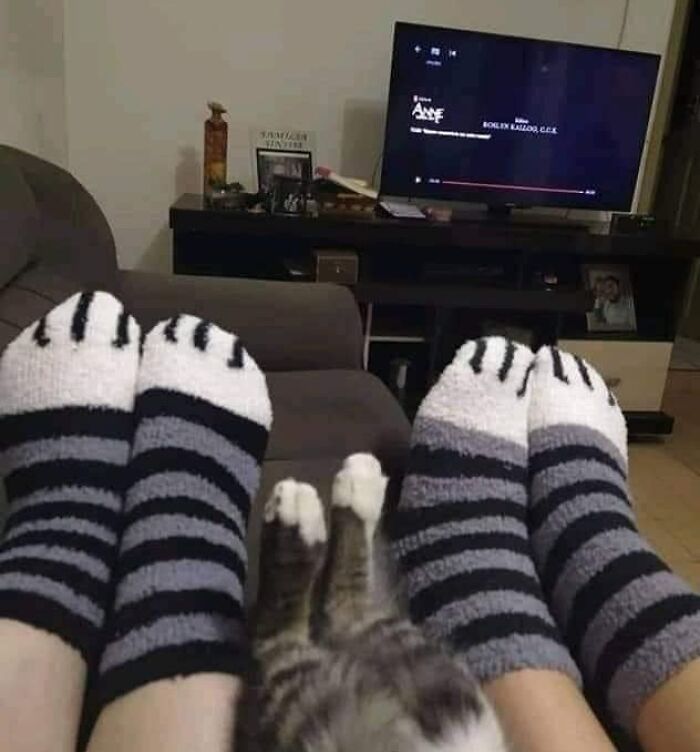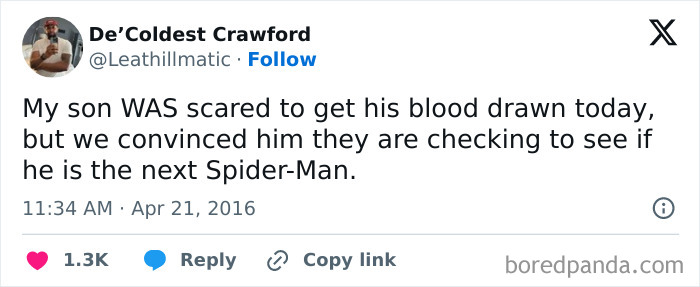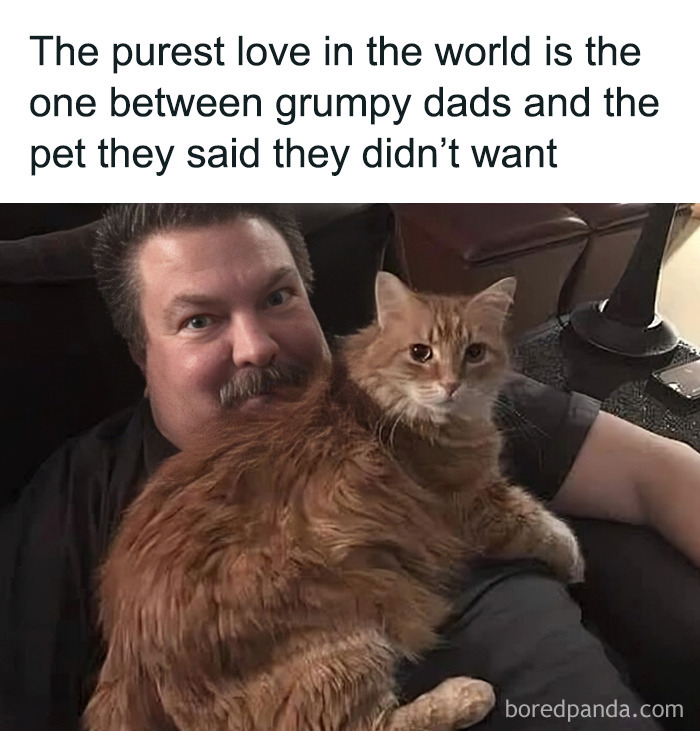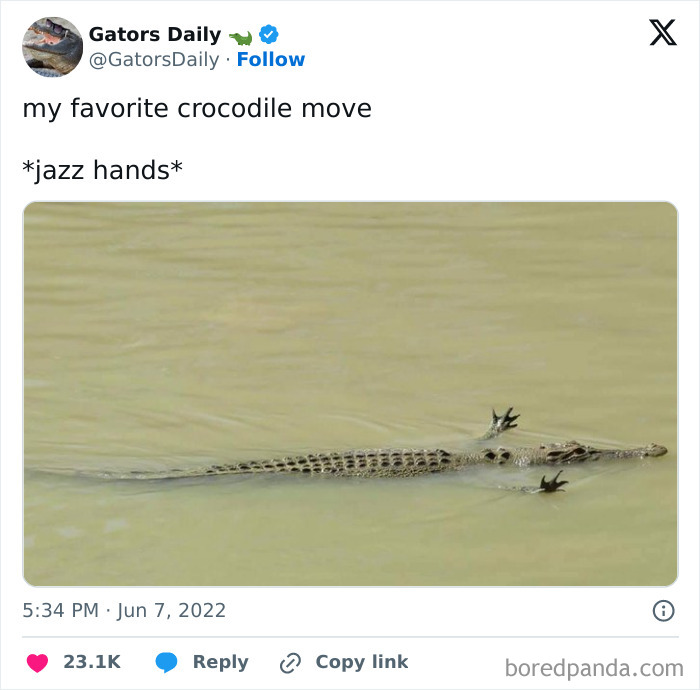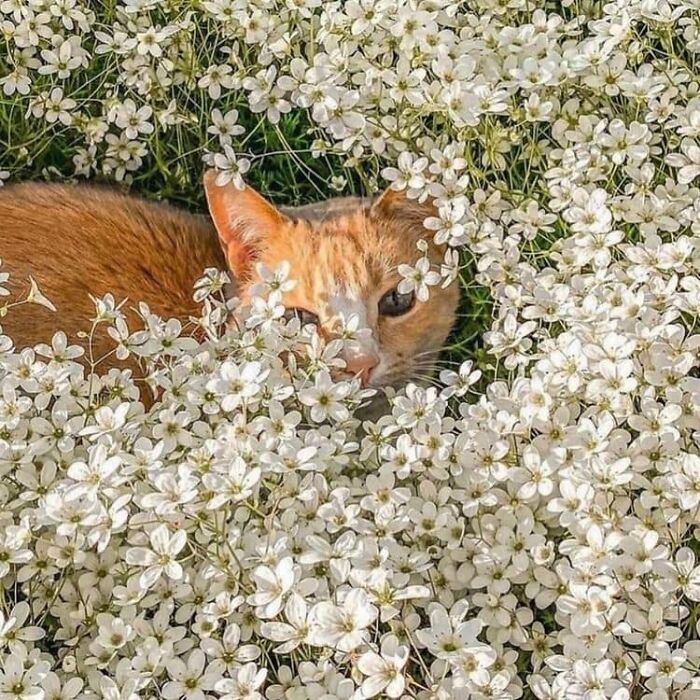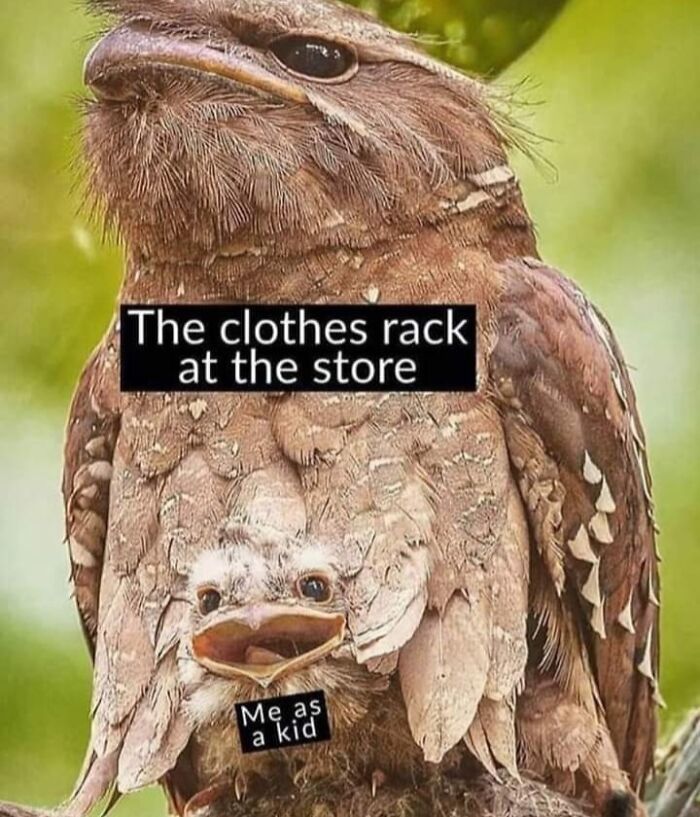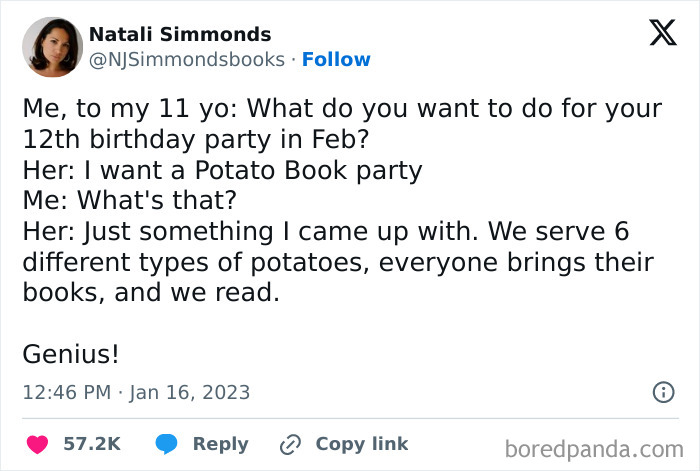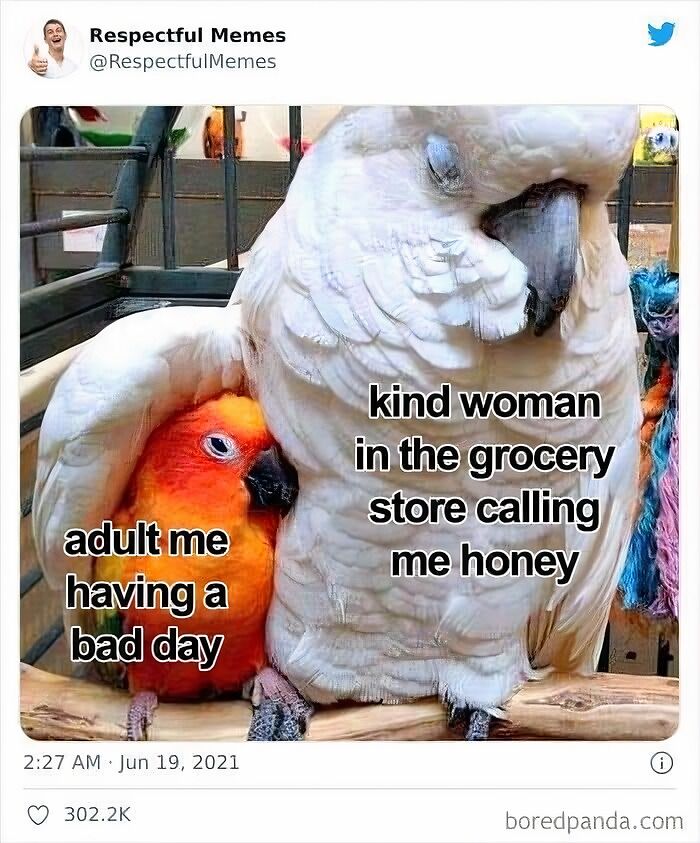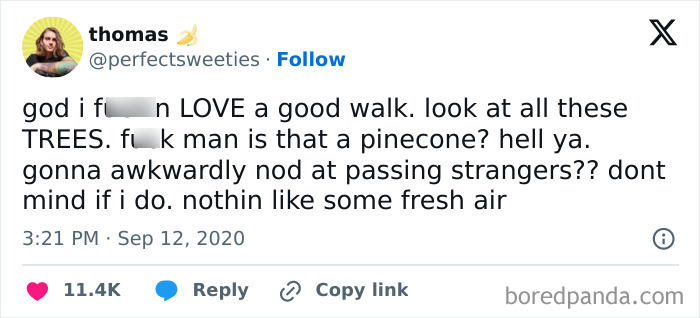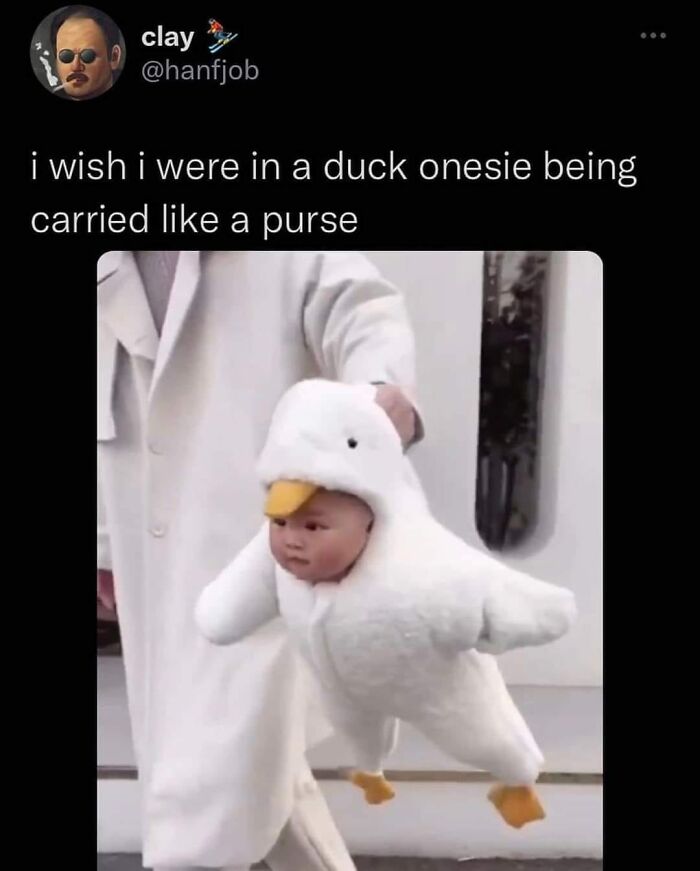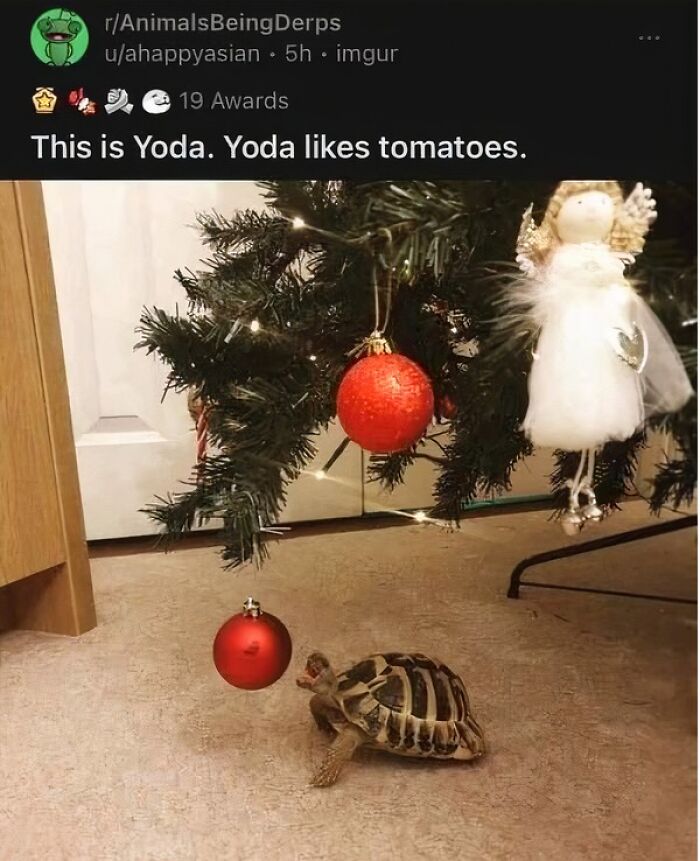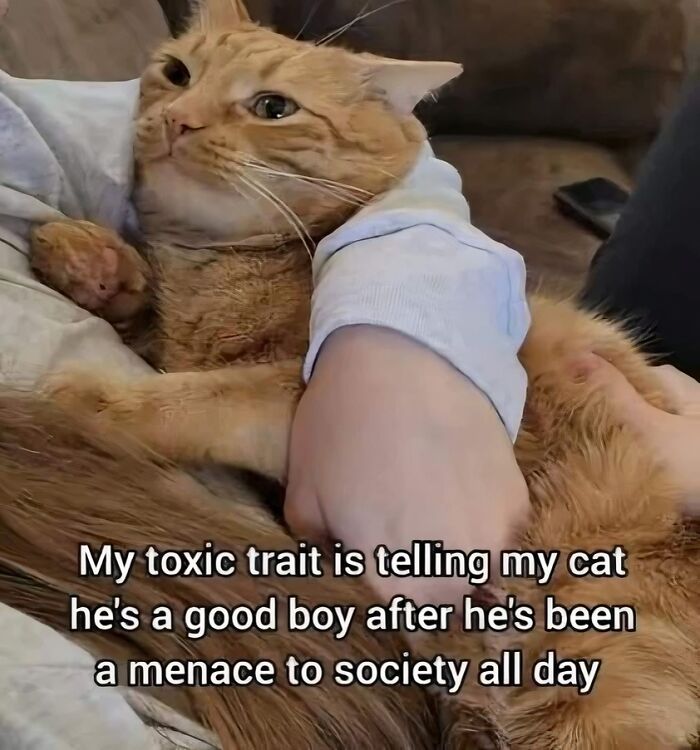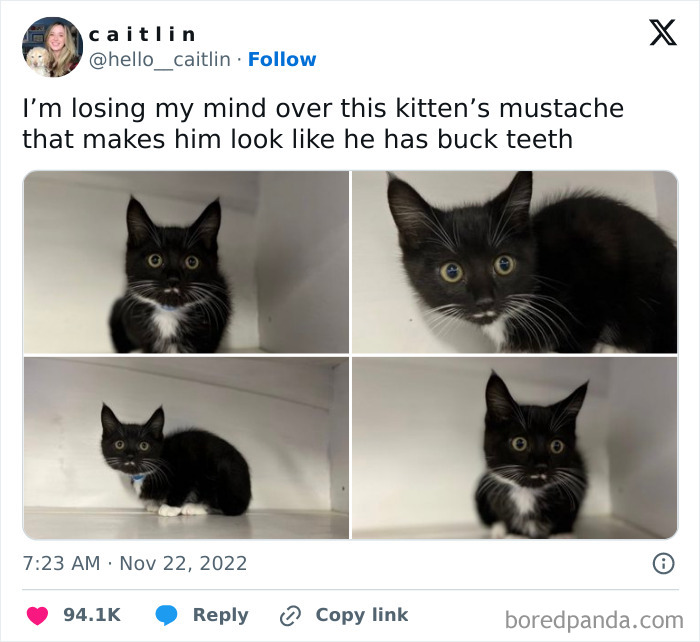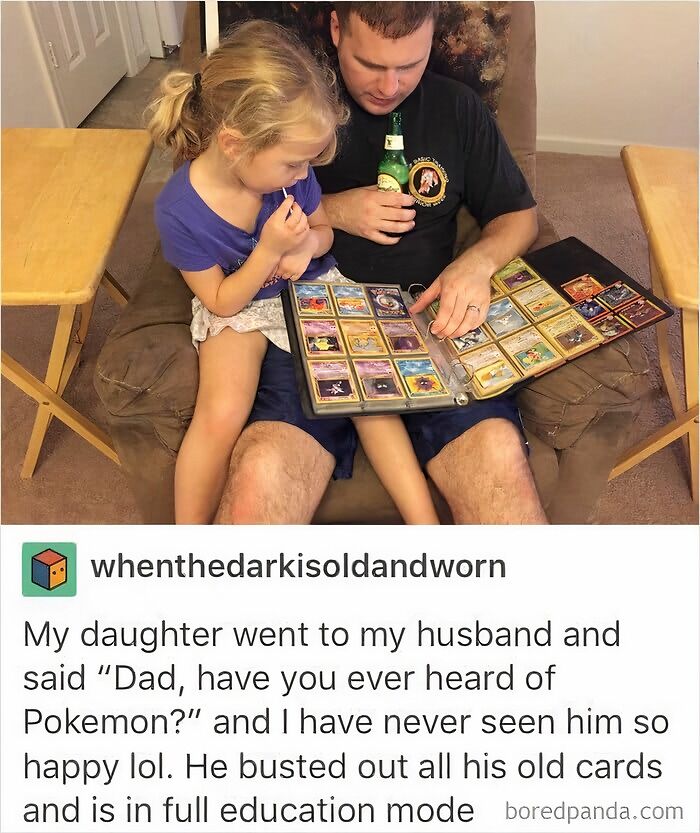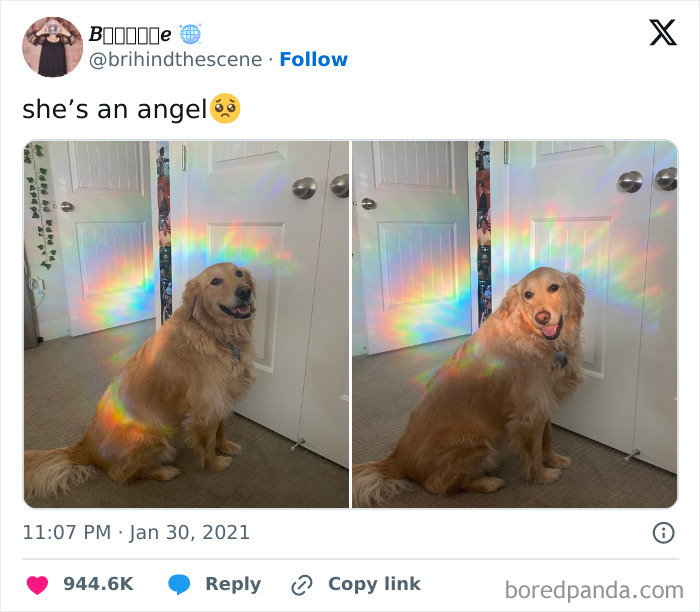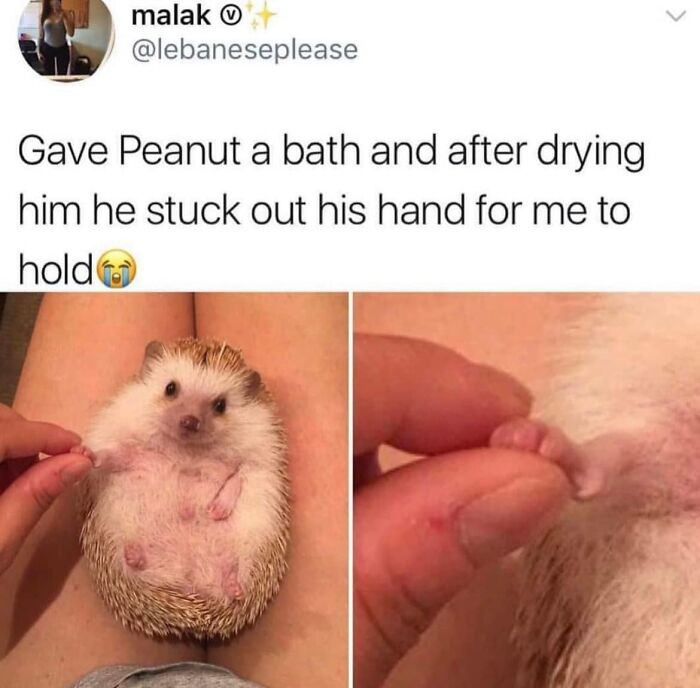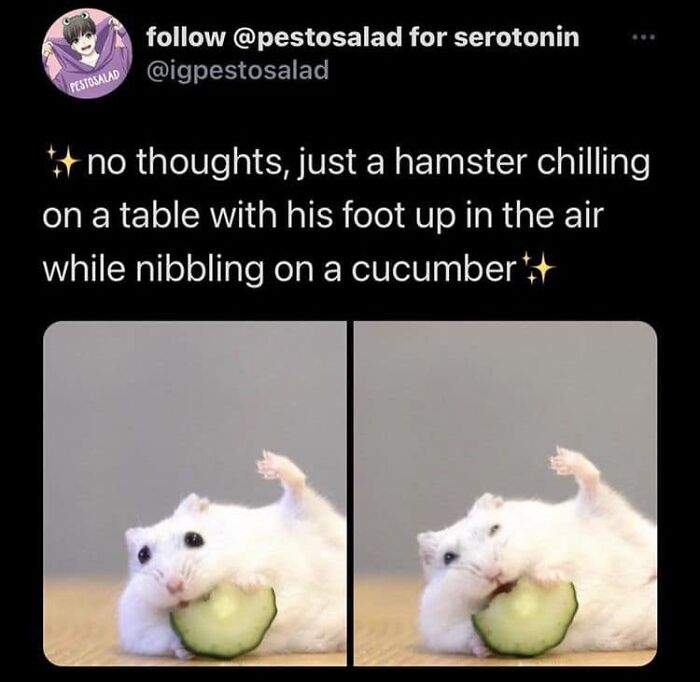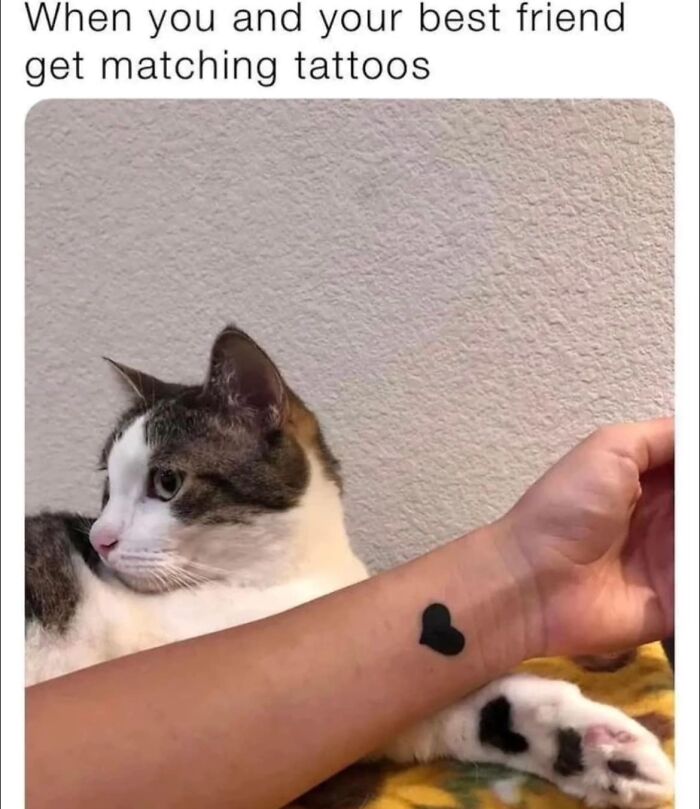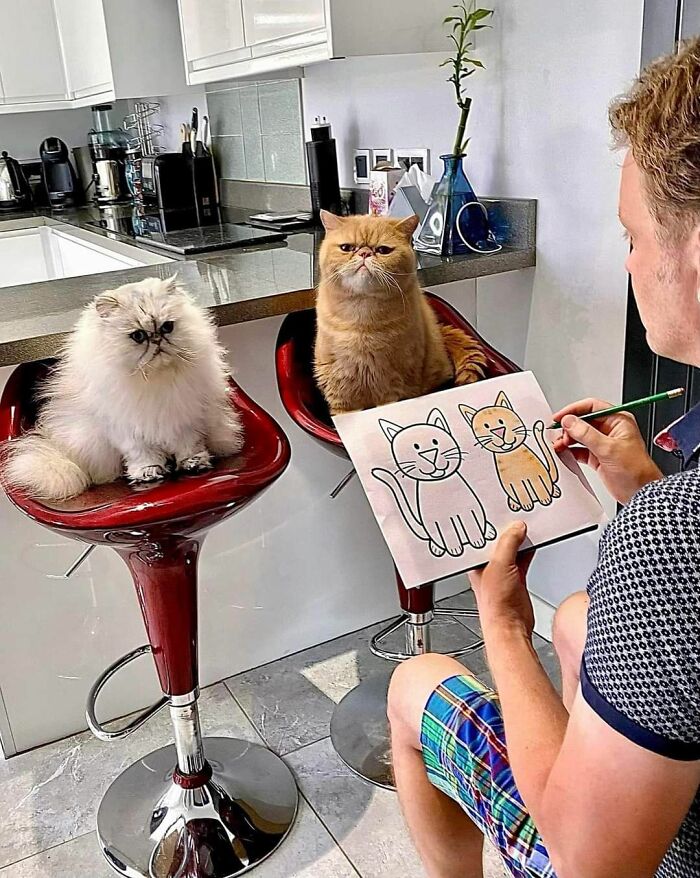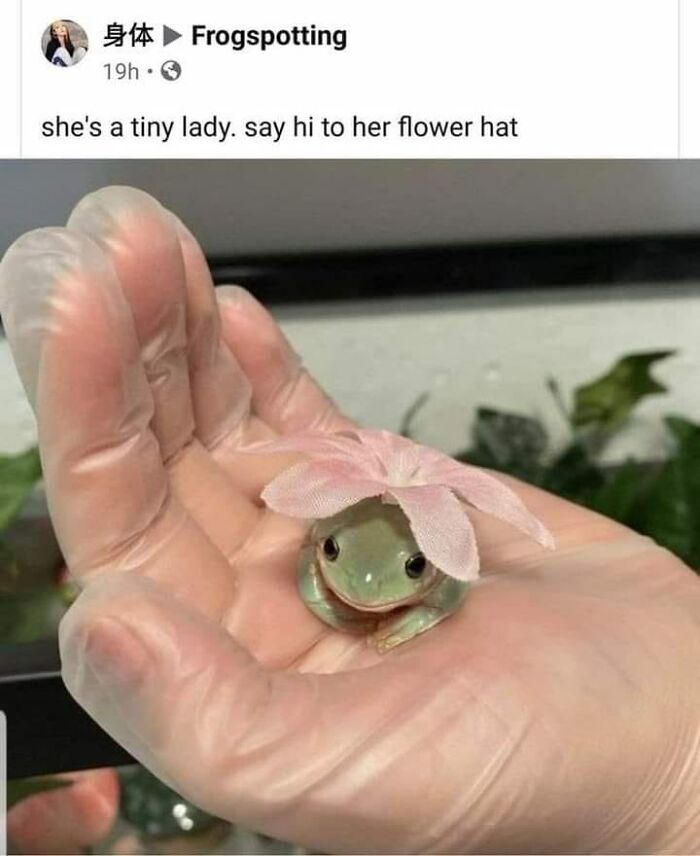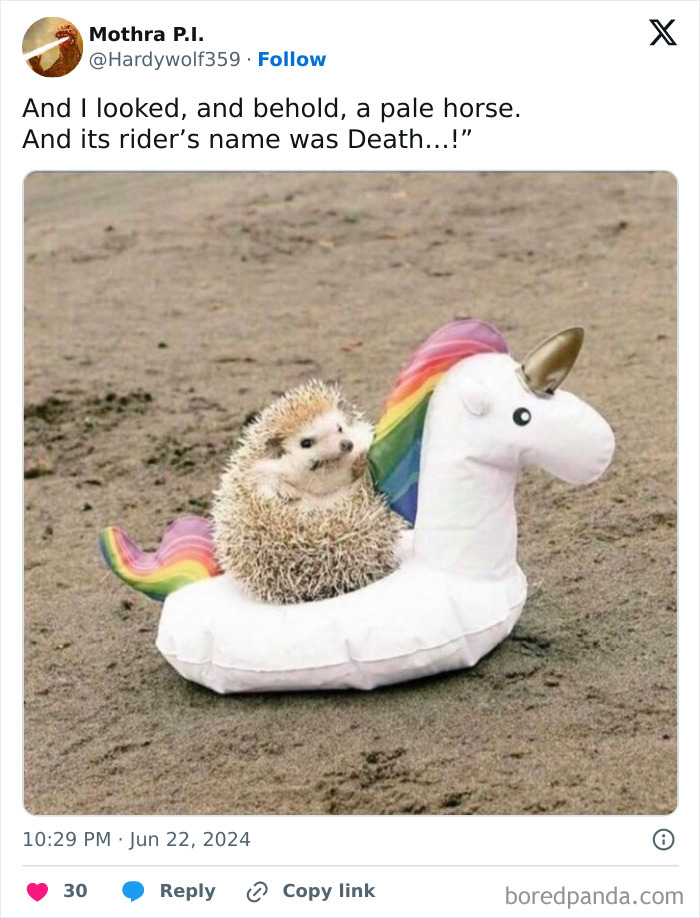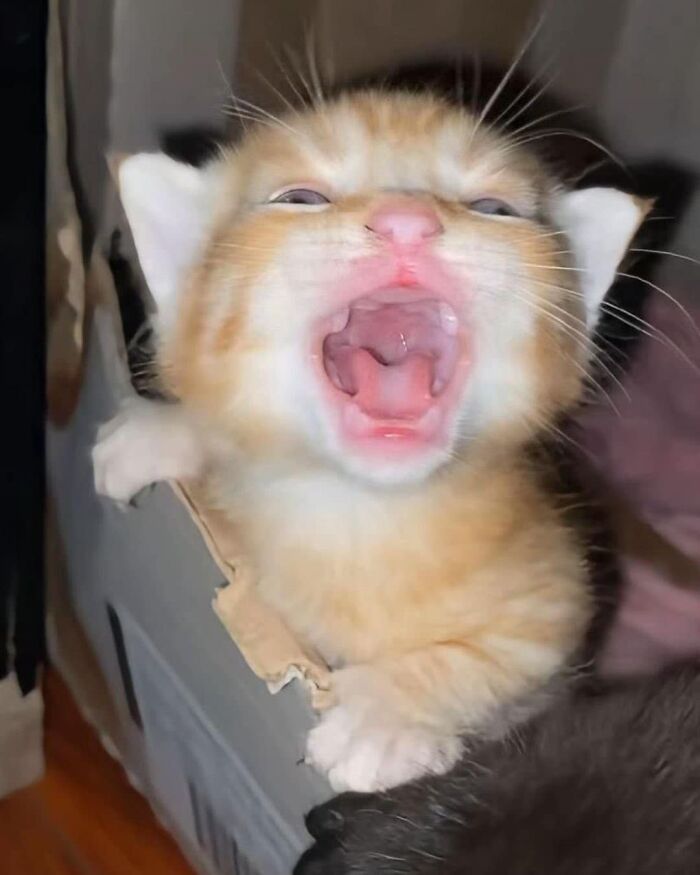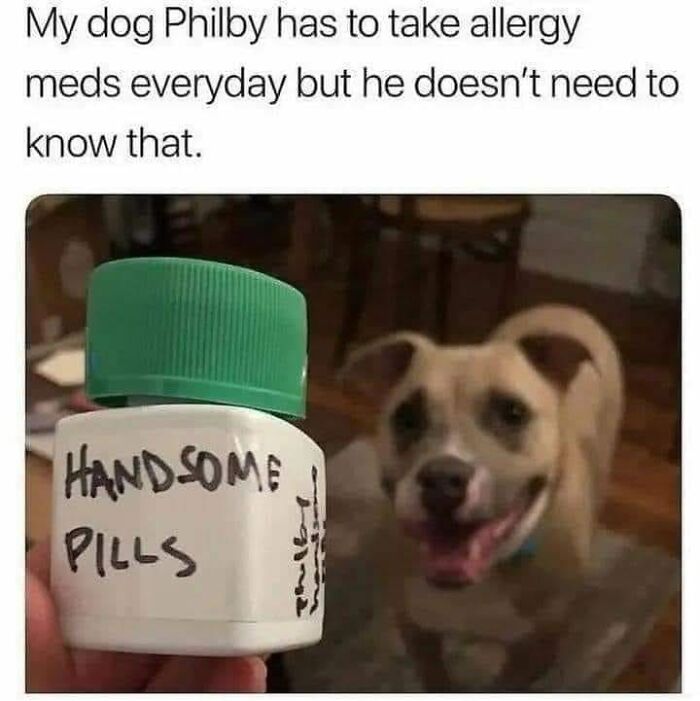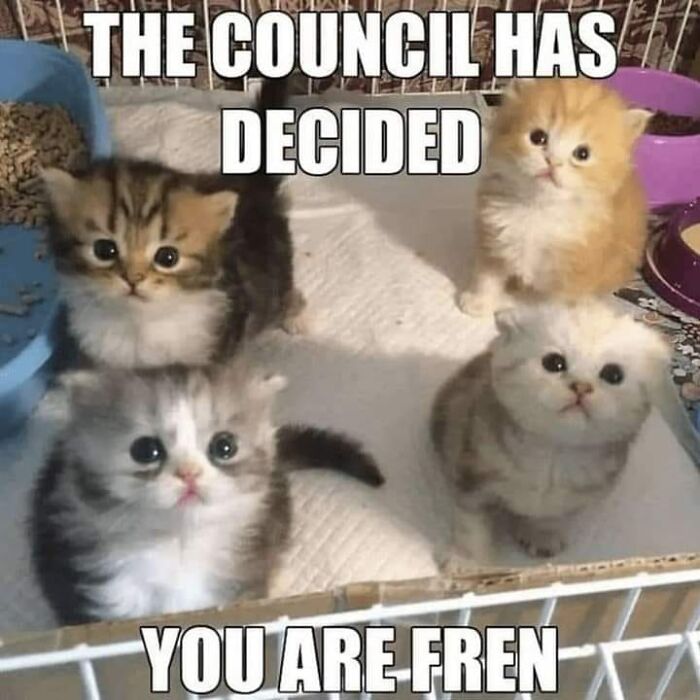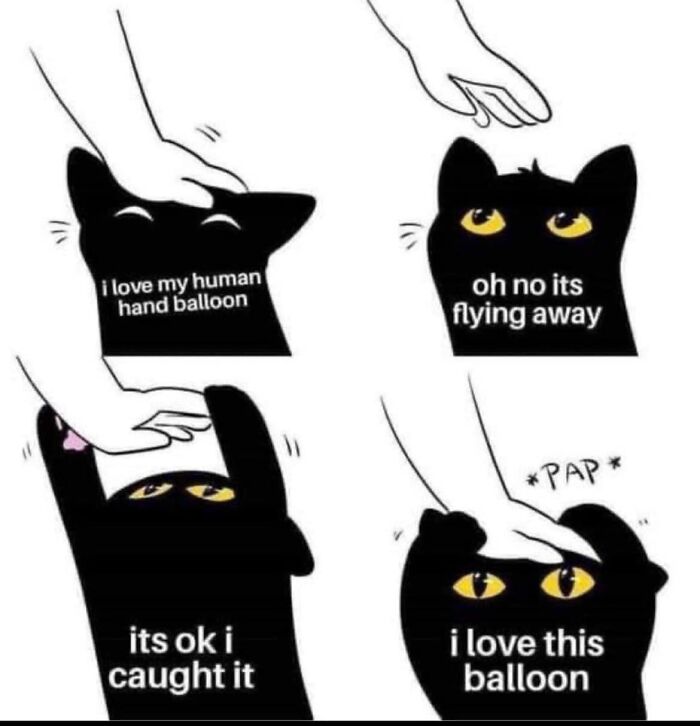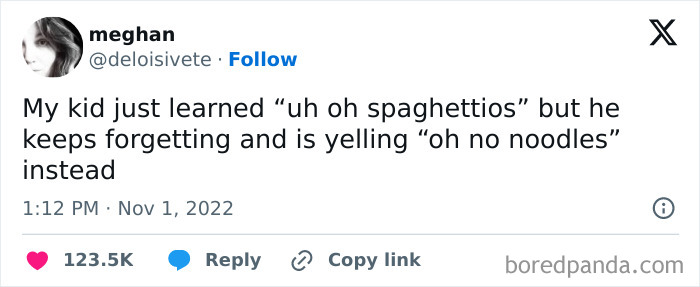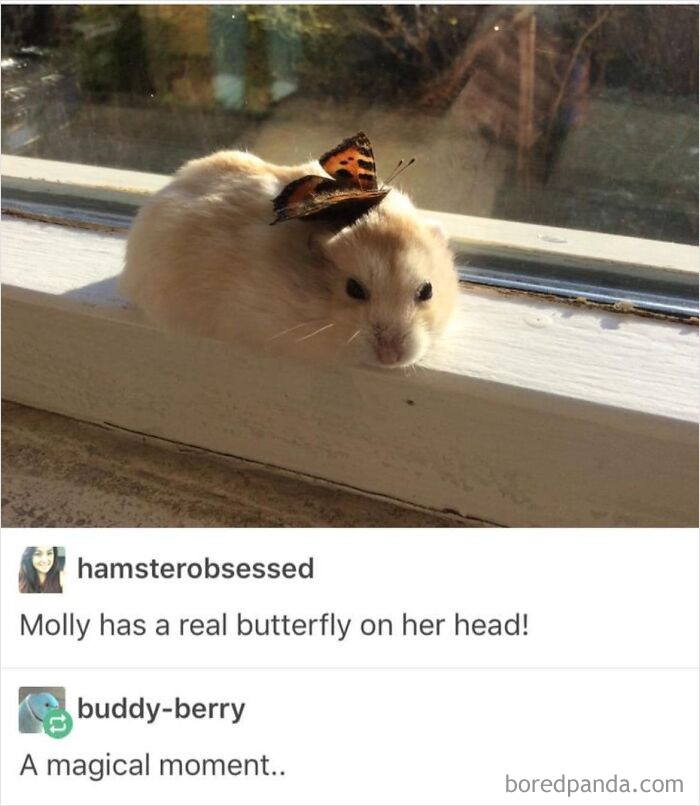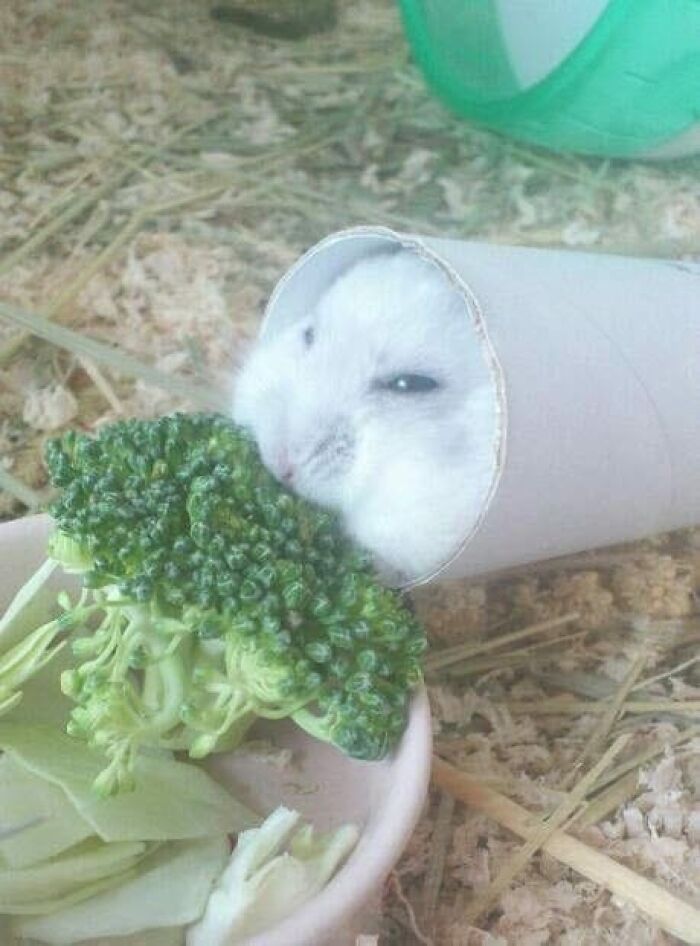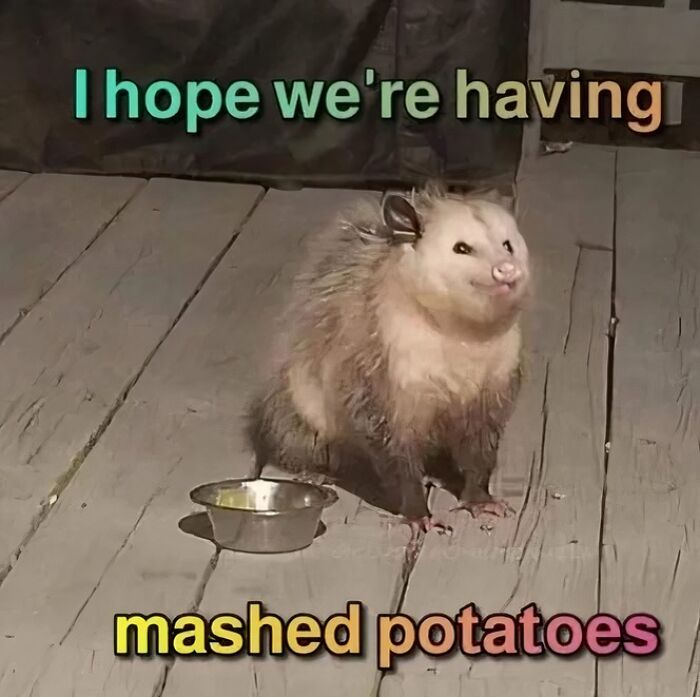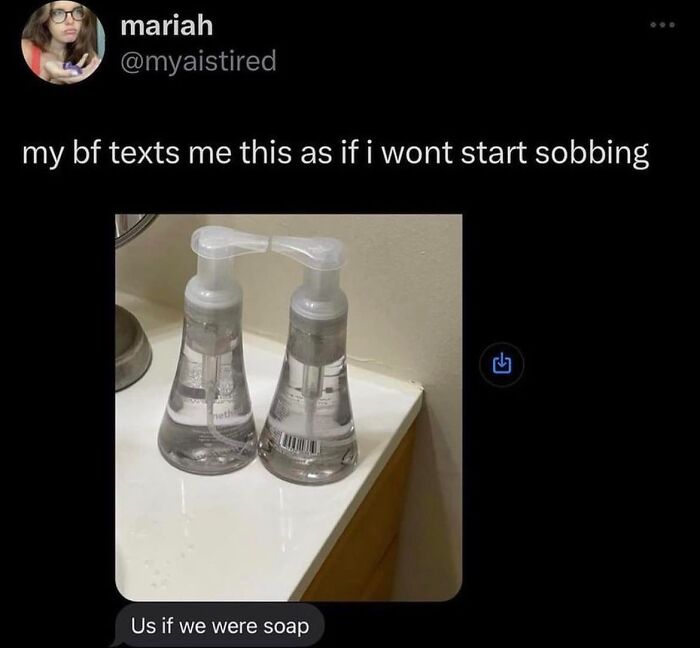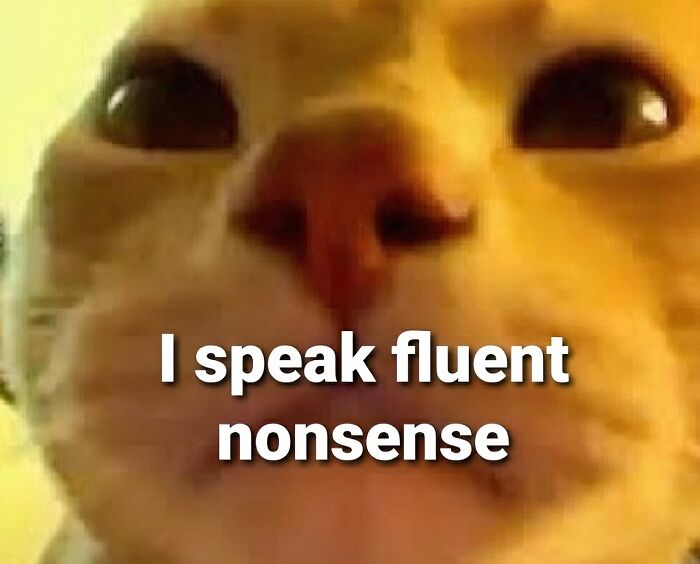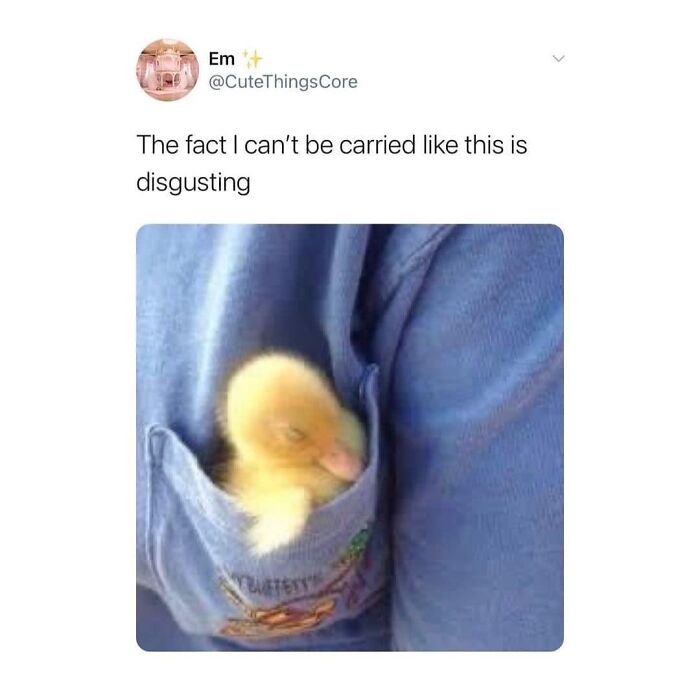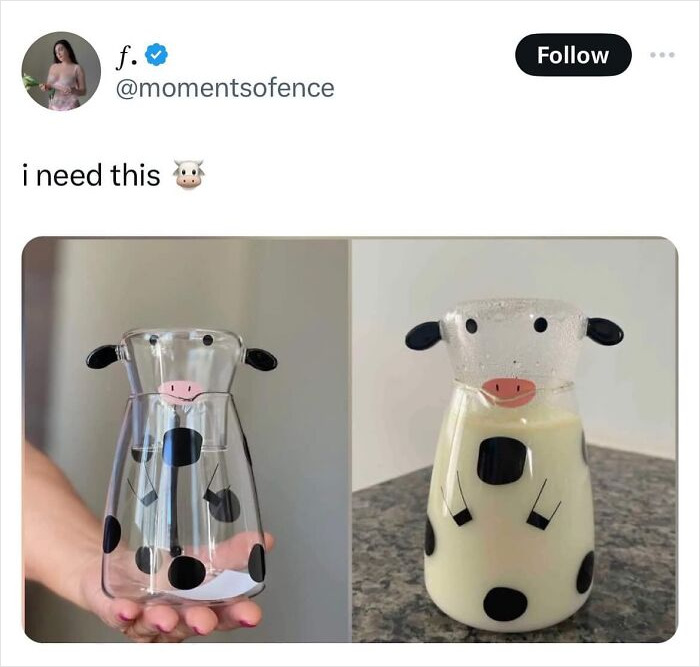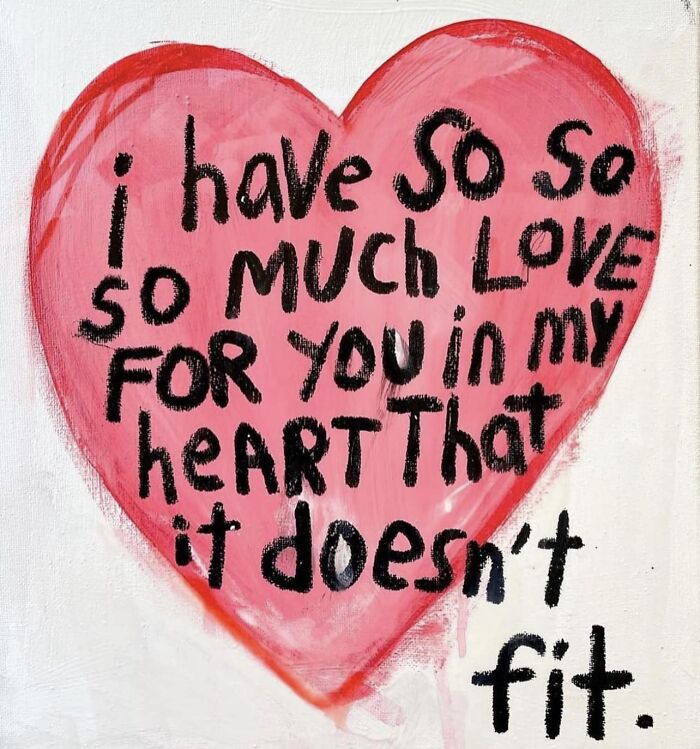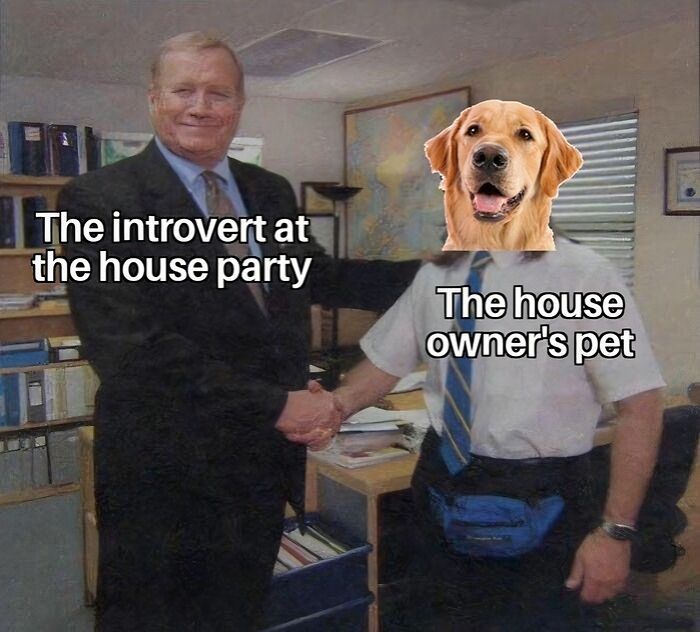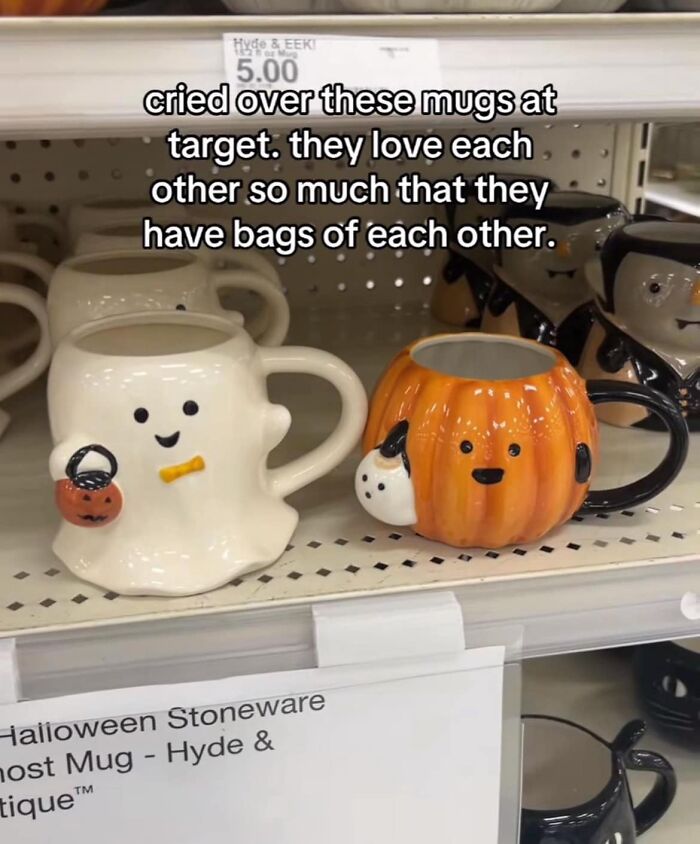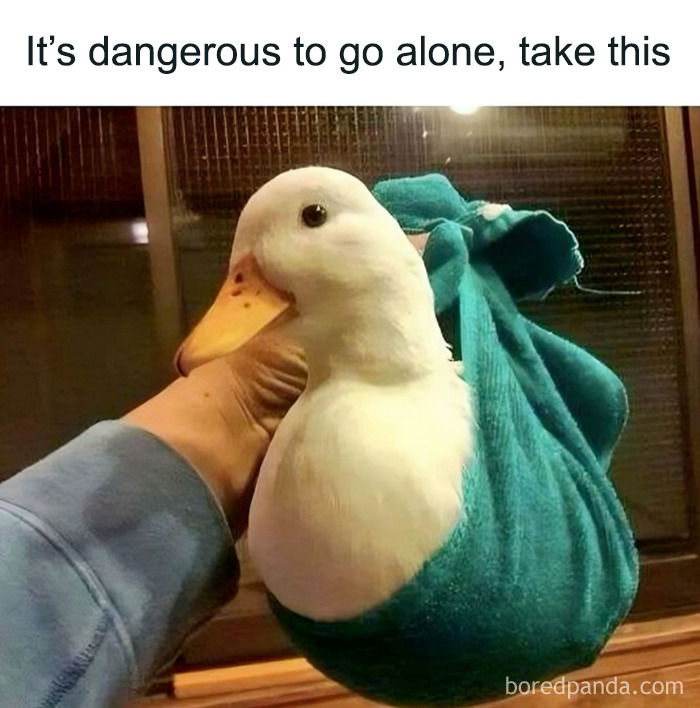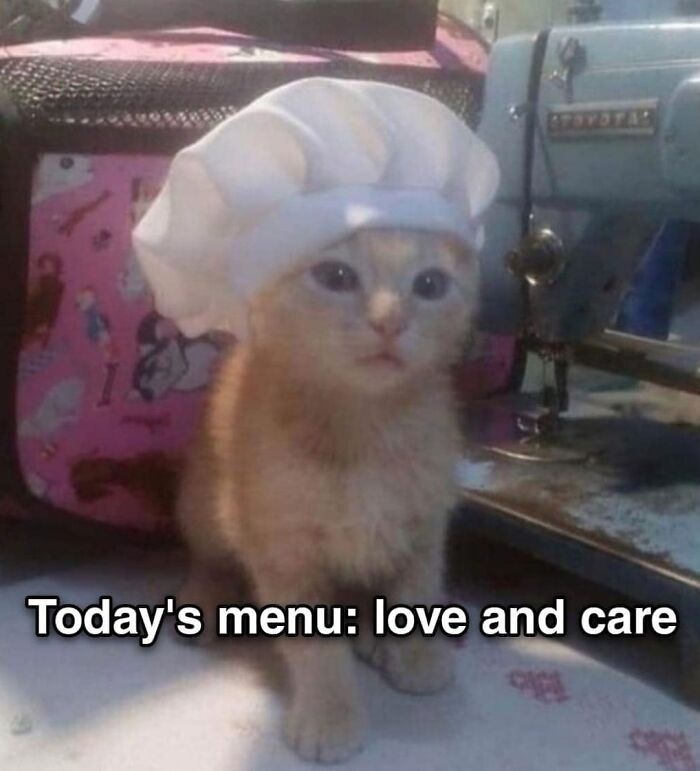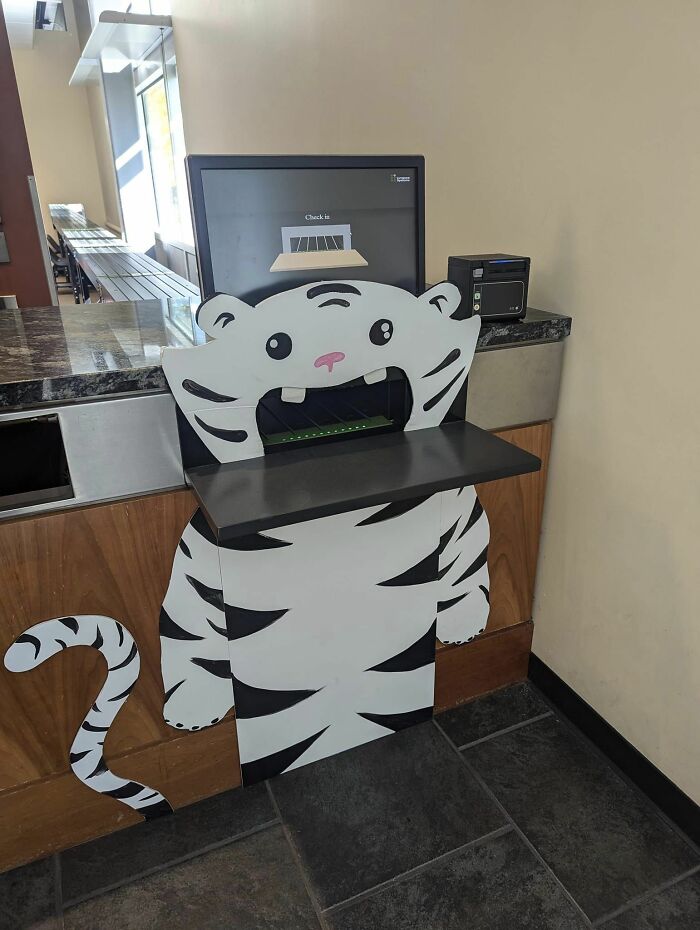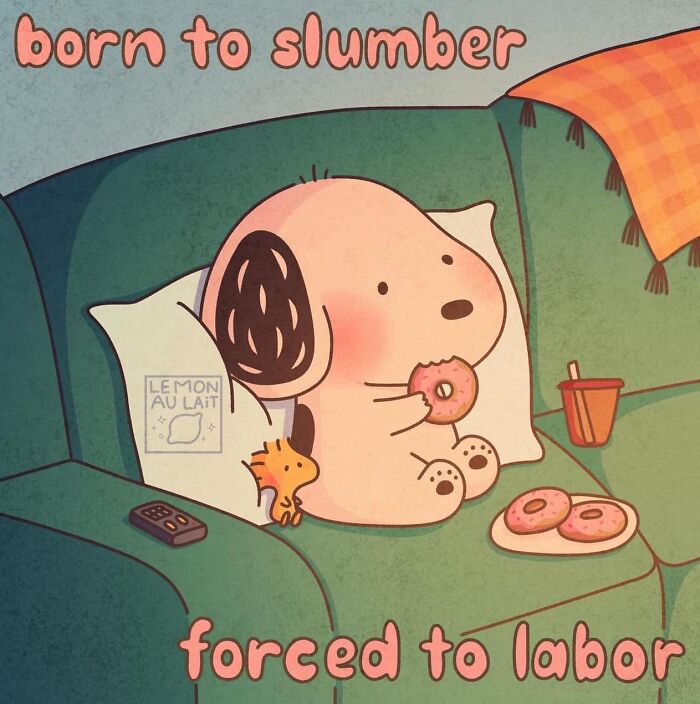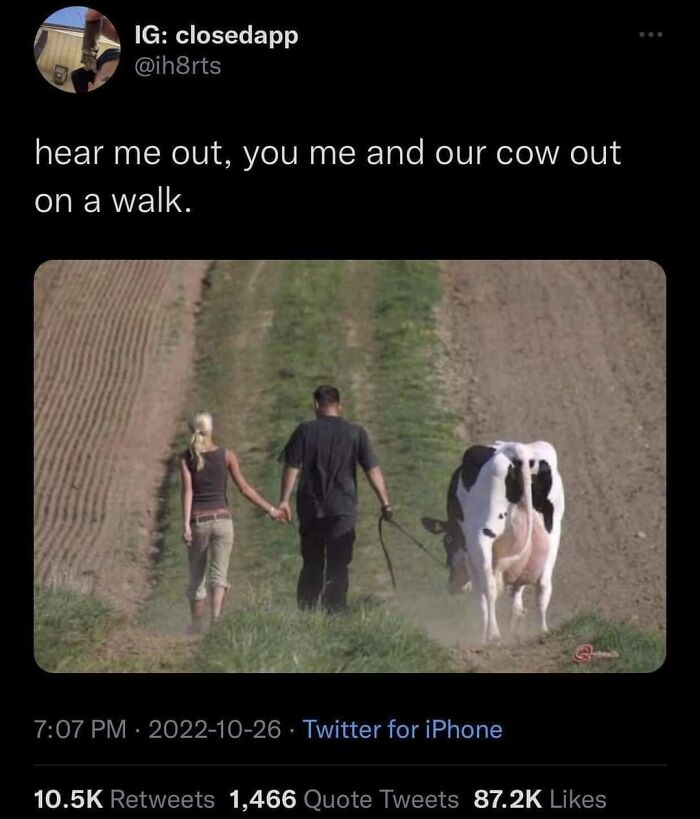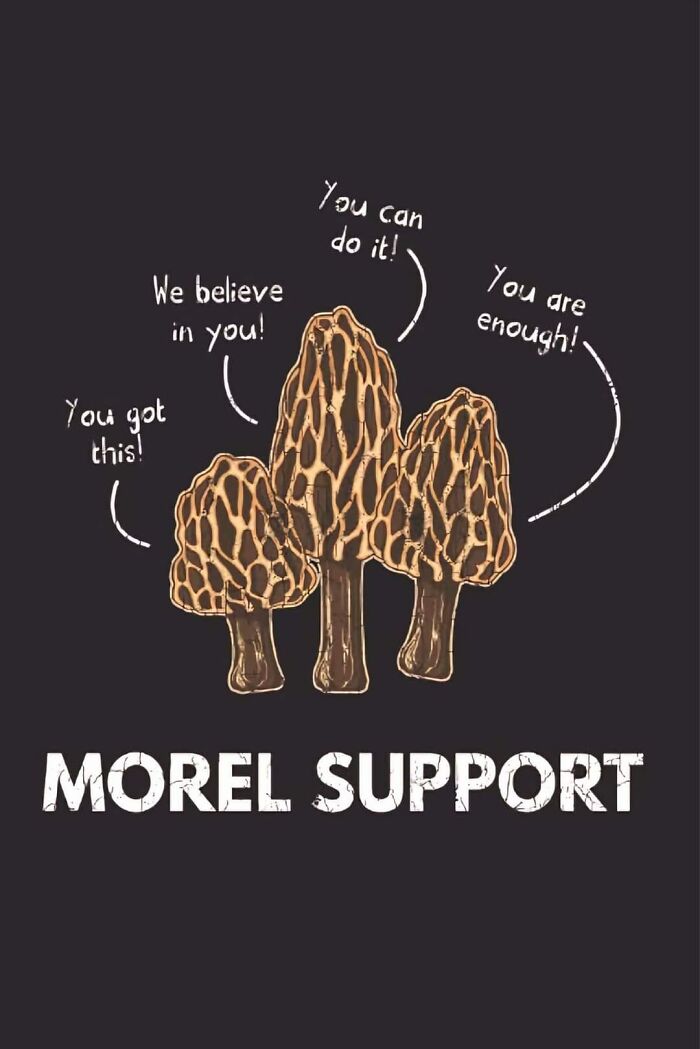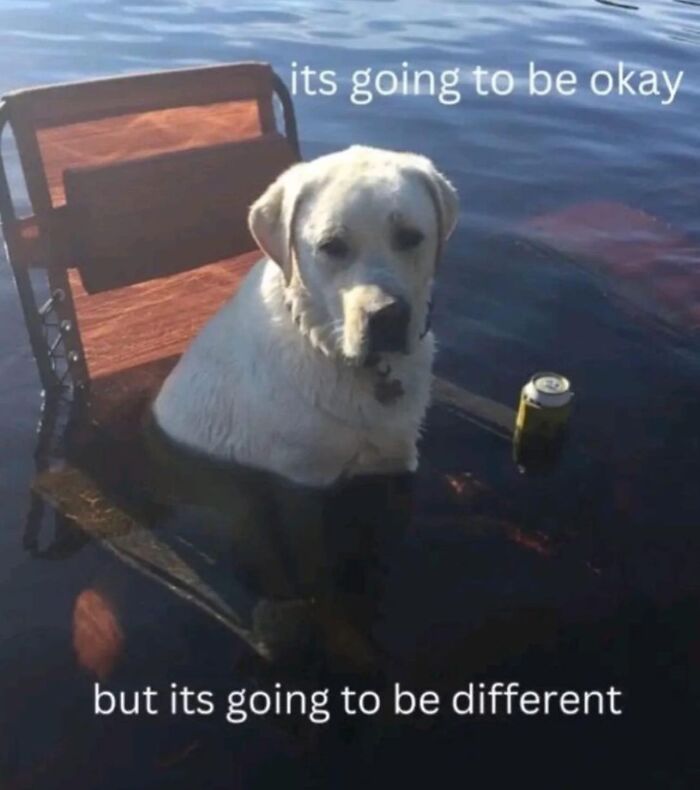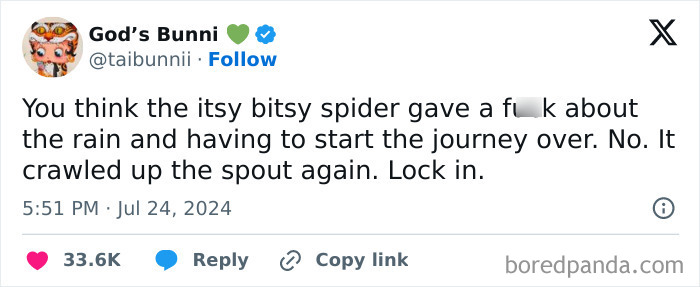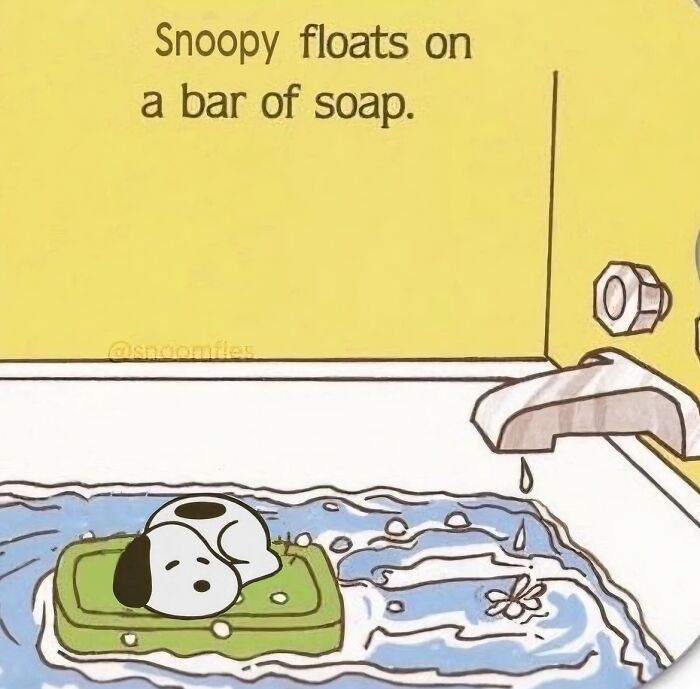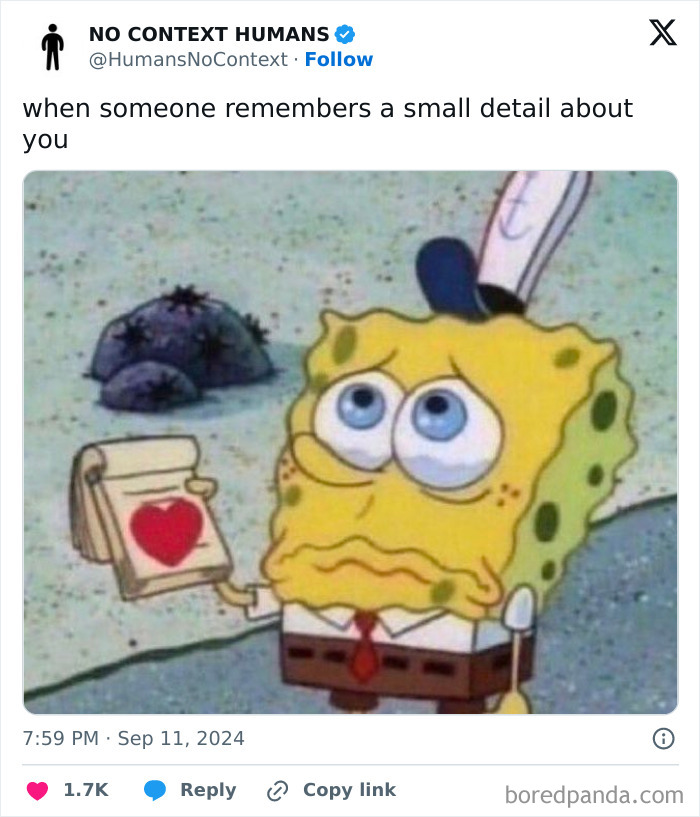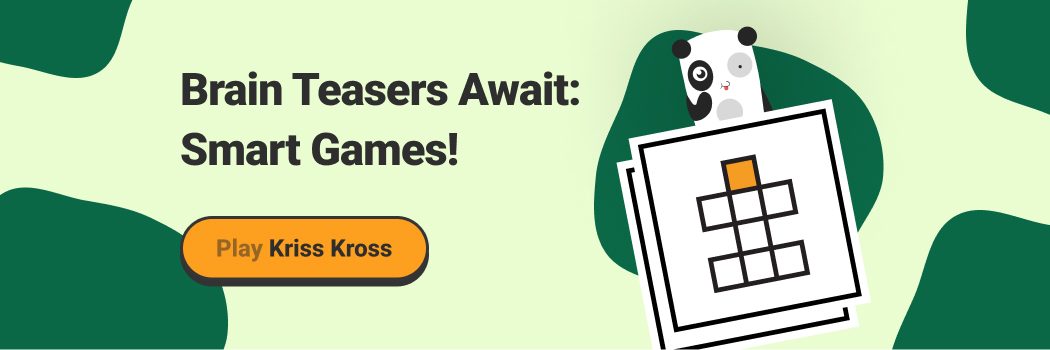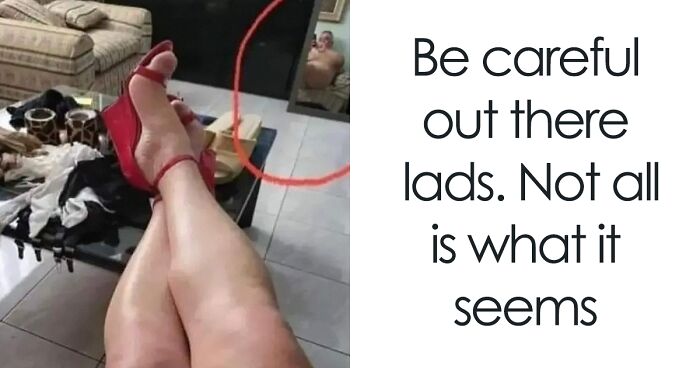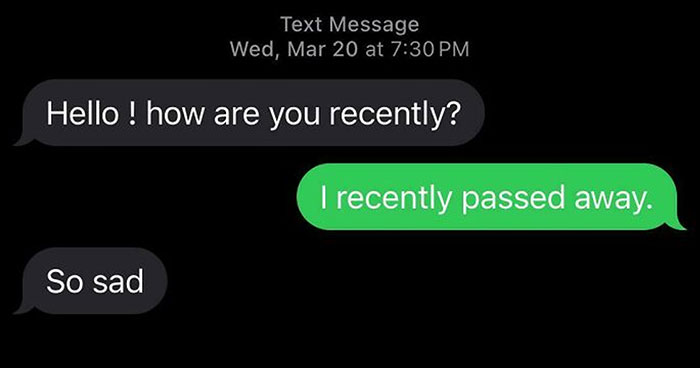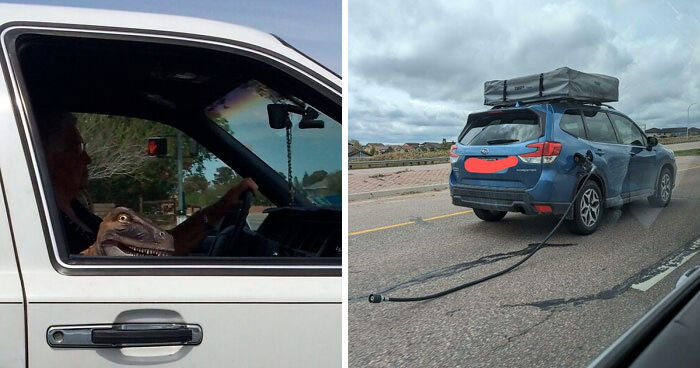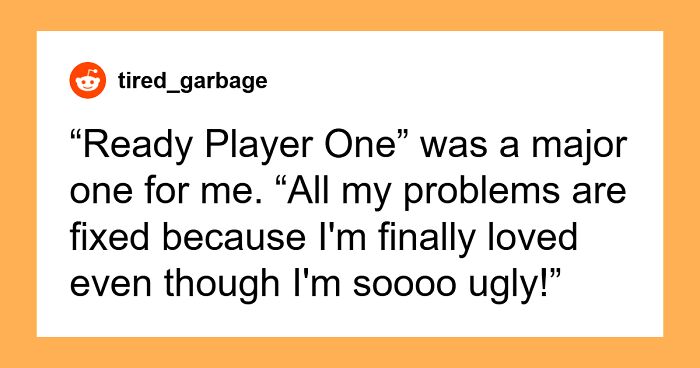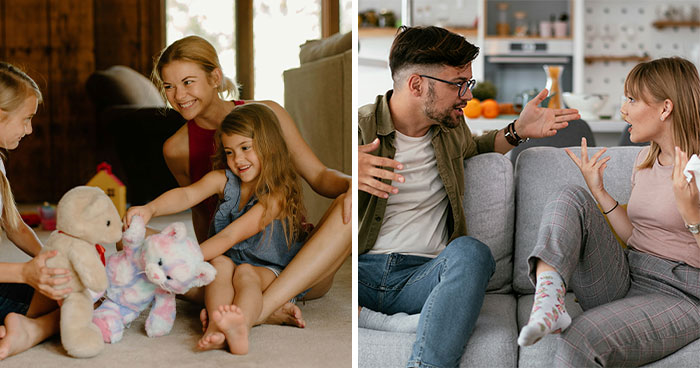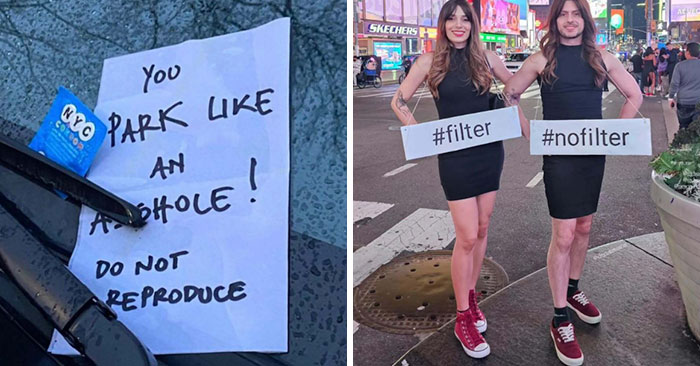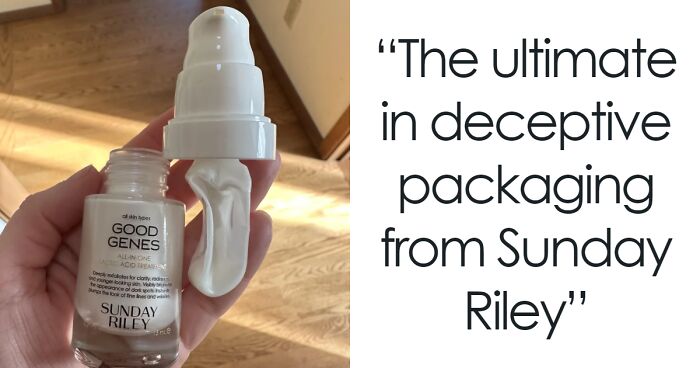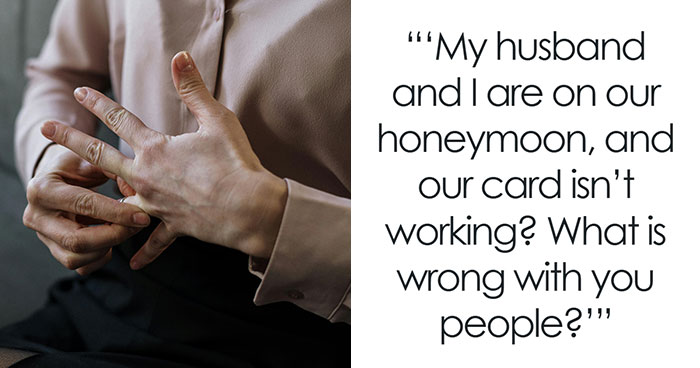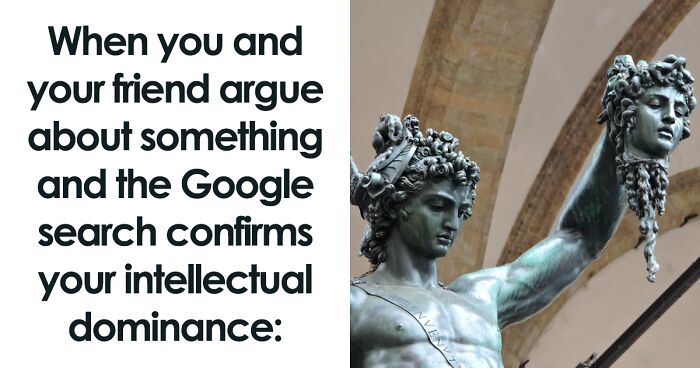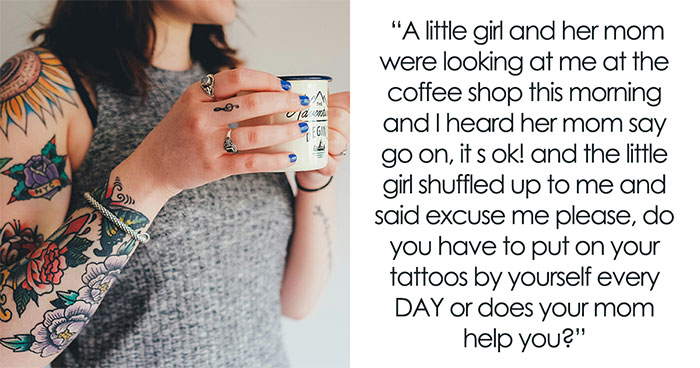
1.9M People Are Enjoying Wholesome Content From This FB Group, So Here Are 50 Of Their Best Posts (New Pics)
Do you like feeling good, pandas? Having a giggle and saying "Aww" at the same time? How about some silly, cute pics, then? Well, since we're all about positivity here at Bored Panda, that's why we've got another collection of wholesome images here for you today.
Courtesy of the "Heck, This Is Wholesome" group on Facebook, feast your eyes on these pictures that just might have the ability to heal your soul. The group has only one rule: anything that makes you happy! And when you're done with this piece of wholesomeness, be sure to check out our previous article on the group here!
This post may include affiliate links.
We had a massive dictionary when I was a child, I loved flipping pages open to a random spot to find new words.
Oh wow! I lived this one! (sort of). (background) My grandmother was a librarian. My mom read to me every day at nap time (and other times) and the two together I credit for my love of books and word meanings and origins and such. -- ANYWHO... On my 7th birthday my grandmother gave me a Webster's unabridged dictionary. One of those ones that's like six inches thick. I spent many hours reading it, learning new words, reading the explanations of the source of the word etc. Plus it has some cool maps and charts / tables in the back. That was over 50 years ago. I STILL HAVE IT. These days the print looks smaller than I remember and I tend to just google words online, but it has sentimental value. So many wonderful worlds opened up to me by being given the gift of loving to read. Okay, enough mush. But it triggered some happy memories.
I was reading at 4 or so, and a question in the library when I was 7 unlocked the world for me "How do I find a book?" Instead of finding it for me, the librarian took me to the card catalog and showed me how it worked. I miss card catalogs. The serendipity of the cards in front of and behind the one being looked for.
Dictionaries and encyclopedias are more powerful than a book of spells.
Words have power. This is a really special thing that she'll remember all her life.
I bought my oldest a dictionary just before he turned 5. I can't tell you how many times I found him in bed reading the dictionary after lights out. He's now 20 and a voracious reader.
I bought an entire set of encyclopedias once (before computers - early 70s) and read about 90% of them.
I was like that growing up. Loved to learn. Heck, I'm still like that at 56 y.o.
I remember when I was little I was able to teach myself to read. Shortly after I got my hands on my parents old set of encyclopedias. It was magical! I still remember the smell from the aged yellow pages!😁 Books are to be read! Not banned! They are adventures yet to be had no matter where the reader is!☺️
My 5th grade teacher Mr. Shogren gave us 5th graders a 10 word list to learn every week. He instilled in me a love a language that led to me getting a Ph.D. in Linguistics 20 years later.
Wholesomeness is all the rage now, didn't you know? The "Heck, this is wholesome" group on Facebook has more than 1.9 million members. If that's not a testament to how the internet is going gaga over wholesome content at the moment, I don't know what is.
Interestingly, the internet wasn't always the place to go for earnestness and wholesomeness. Even dog and cat pictures, a staple of the early World Wide Web, had a certain edge to them; one of the main requirements was that the picture had to be funny, with the pet either doing something derpy or acting like a human.
For most of their history, memes have been absurdist, surrealist and sometimes even required in-depth insider knowledge of the internet. Memes were like living organisms, evolving through time. But how did this shift from dank and ironic to nice and wholesome happen? And, more importantly, why?
Amanda Brennan, multimedia journalist, curator of Tumblr's fandom trends, and former contributor to Know Your Meme, says wholesome memes began to take center stage because our understanding of what the internet is for has changed. If before, it was about fake identities and sarcasm, today, it's all about authenticity.
"I think people are getting more in touch with presenting their authentic personalities online rather than presenting what they feel like they should be on social media," Brennan told Vox. "On Tumblr, authentic actions come first. You're there for whatever thing you love the most — animals, TV shows, musicians, your favorite ship. People are starting to realize that maybe it's okay to be that authentic version of yourself everywhere on the internet."
Other digital culture experts are saying that "wholesome" is the ultimate Gen Z compliment. Some even say that the word itself means something different to Gen Z. The Merriam-Webster defines 'wholesome' as "promoting mental or moral health and well-being" and "promoting health of body." But on the internet, it doubles as a synonym for "endearing."
"The word 'wholesome' now reflects something more positive, accepting, and feel-good," Julia Mathews, the president of King's College London Wholesome Society, told The Standard. "Perhaps this is in part due to Gen Z's awareness of the importance of wellbeing and mental health, as well as a desire for positivity in a world with increasingly negative mainstream content."
Perhaps people finally realized that being mean online doesn't make you feel any happier? Yes, we're prone to negativity bias, those who have a negative outlook on the world actually are at a disadvantage. One study of 180 nuns in Milwaukee found that joyful nuns live longer than their gloomy counterparts. So, would you rather be cringe or live longer?
Some people also suggest that we've turned to wholesomeness as a form of resistance. Letty Cole, creative strategist at MØRNING and editor of Burn After Reading, also told The Standard: "Think and hope wholesome content is a true reflection of our desires to go outside, spend time with loved ones, and enjoy our planet."
The New York Times suggests that wholesomeness is not just a trend; it's a generational value. Michèle Lamont, a sociology professor at Harvard, told the NYT that Gen Z became adults under COVID-19, and that's why they focus on positivity in order to overcome the hardships.
Hopecore videos on TikTok are another form of wholesome content online. What a few years ago would've been branded as cringe and laughable is now providing much-needed comfort to people. Louisa McGillicuddy, the trends lead at TikTok, told The Independent that people don't just watch these videos – they save a high save ratio too. "It's almost like stockpiling affirmations," McGillicuddy noted.
So, Pandas, here's some positivity for you – either for the beginning, the middle, or the end of your day. Let's all make our little corner of the internet a little bit better, shall we? And when you're done with this list, be sure to check out another collection of wholesome pictures right here!
https://www.boredpanda.com/refusing-donate-pto-cancer-coworker/ “I’m Not Actually Sympathetic To Her Situation” life is weirder than social media fiction.
https://www.boredpanda.com/refusing-donate-pto-cancer-coworker/ “I’m Not Actually Sympathetic To Her Situation” life is weirder than social media fiction.

 Dark Mode
Dark Mode 

 No fees, cancel anytime
No fees, cancel anytime 


